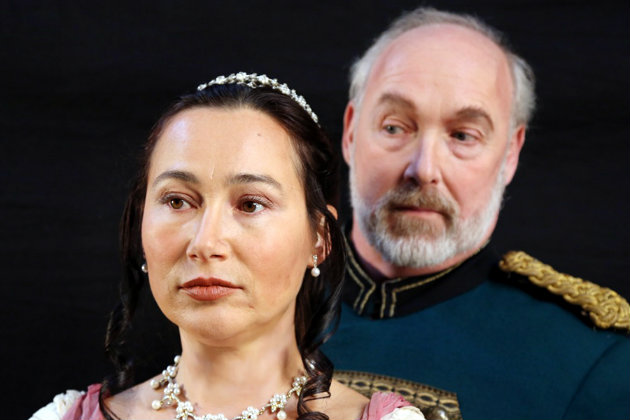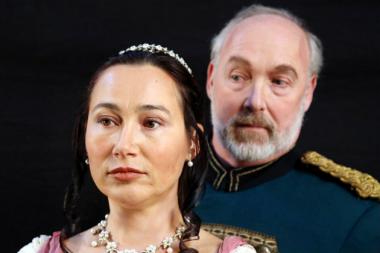
Nothing makes you appreciate just how much goes into an opera than a mixed performance of a great work. West Bay Opera's 60th season continues with an ambitious production of Eugene Onegin, and while it strained the company’s resources and exposed some limitations, the performance on Sunday, Feb. 21, was still very much worthwhile.
The orchestra, valiantly led by general director José Luis Moscovich, had many intonation problems, which were obvious because of the reduced number of players. The letter aria was fraught, especially as far as the horn was concerned. There were synchronization problems between the orchestra and the chorus in Act II. Nonetheless, the musicians played with spirit and vividness.
They were supporting a cadre of fine, well-cast singers. Anders Froehlich made for a dashing and smug Eugene Onegin, and looked the part. His Act I aria (“Were I a man whom fated intended”) was lovely; his baritone is light and pretty. Olga Chernisheva was a winsome Tatiana, her execution of the choreography flawless, and even her slight head turn as she waits to see Onegin at the end of Act I was absolutely charming. Her voice is powerful and worked especially well in the last scene, her anger and regret palpable. Olga Chernisheva was a winsome Tatiana, her execution of the choreography flawless, and even her slight head turn as she waits to see Onegin at the end of Act I was absolutely charming.
Best of all was tenor Jorge Garza. His rendition of Lensky's aria in Act II was gorgeous and the high point of the opera. Every emotion was clear as he reflected on his life as he is waiting to duel his friend, and Garza's bright voice sounded beautiful and plaintive.
Other standouts were Patrice Houston as Filipyevna (Tatiana's nanny), and Carmello Tringali as Monsieur Triquet. Veteran singer Houston was a contrast to the darker voices of Nikola Printz (Olga) and Anna Yelizarova (Larina, Tatiana's mother), while Tringali was an amusing fop.
No new ground was broken in director Ragnar Conde’s production, but it certainly was nice to look at. The set, designed by Peter Crompton, consisted of two, huge gilt frames, one downstage and one mid-stage and a large screen in the background for video projections. The frames are cracked, and often the background images also showed weather and wear in the same fashion.
Designed by Crompton and the ubiquitous Frédéric O. Boulay, the projections depicted simple landscapes or prettily appointed rooms and they worked to switch out scenes with minimal disruption. Occasionally they would waver or crackle based on the dramatic import of the scene, spelling out what was going on for the audience.
Callie Floor's costumes were in keeping with the time period and Mark Foehringer's choreography was pleasant and airy, the four dancers adding to the festive atmosphere of the party scenes. It was a pleasure to hear some Russian opera (sung in Russian) in the Bay Area (San Francisco Opera hasn't done one since Boris Godunov in 2008), even if in less than ideal circumstances.

